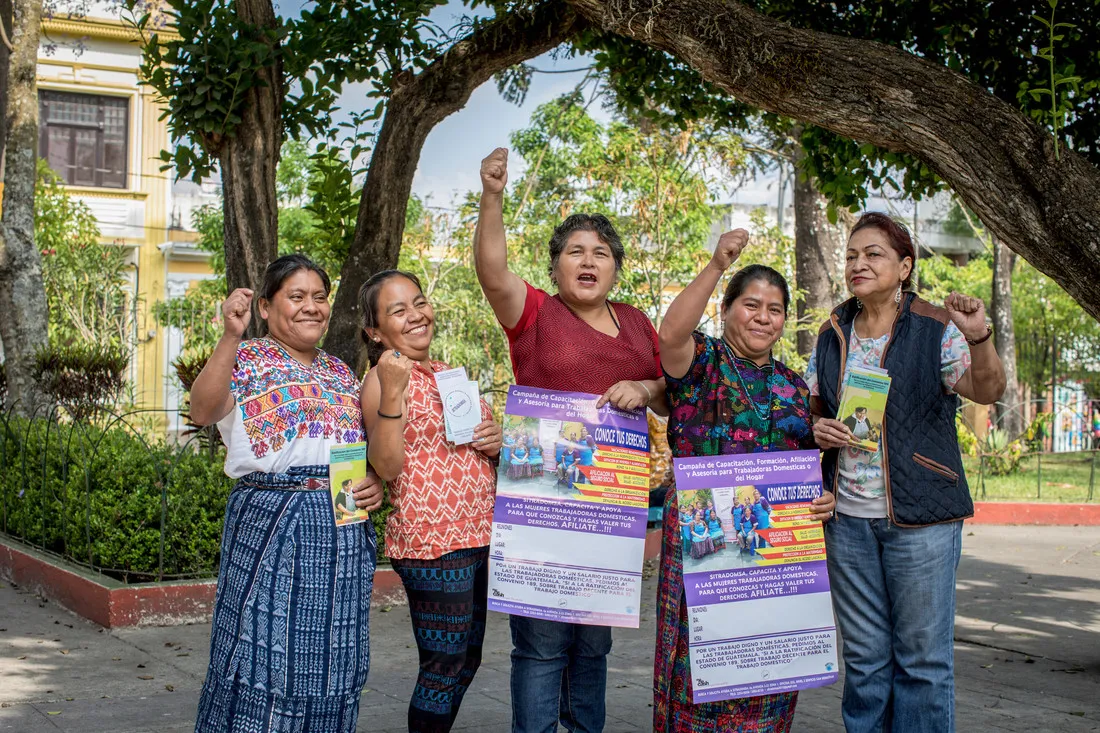CARE established partnerships in Ecuador, Peru, Brazil, and Guatemala, and more recently in Mexico, Colombia, and Honduras. These partnerships engage in research, exchange of experiences, communications strategies, coalition building, and networking and capacity building, with the goal of influencing public policies, strengthening their organizations, and improving the lives of more than 10 million domestic workers across the region by 2030.
Background
In 2011, the International Labour Organization (ILO) adopted the Convention Concerning Decent Work for Domestic Workers (Convention 189), thus setting international standards for domestic workers. Over the following years, national domestic worker organizations throughout Latin America made it a political priority to ensure the ratification of the Convention within their own countries.
Strategy
In the most recent phase, Phase 3 (2015-present), CARE defined a regional strategy with a long-term goal: to give 10 million domestic workers in the Latin America and Caribbean region access to social security, minimum wage, and decent contracts by 2030.
CARE assists partners in strengthening their organizations, facilitates opportunities for sharing knowledge and learning, and seeks to gain greater political influence. CARE also backs massive communication campaigns aiming to change behaviors among domestic workers’ employers, helps organizations use CARE’s seed money to mobilize greater financial resources, and supports the evaluation of achievements made in these activities. CARE’s work focuses on six countries: Ecuador, Honduras, Mexico, Colombia, Guatemala, and Brazil.

